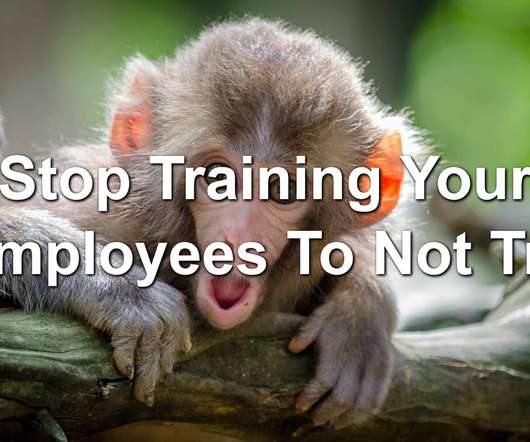Stop Training Your Employees To Not Try
Joseph Lalonde
JULY 14, 2022
Google allows its employees to spend 20% of their time working on pet projects. These pet projects are things the employee sees that could benefit Google. Prahalad wrote about in one of their books. When employees step out of their comfort zone and try something new, magical things happen. Most organizations are not like Google.















Let's personalize your content